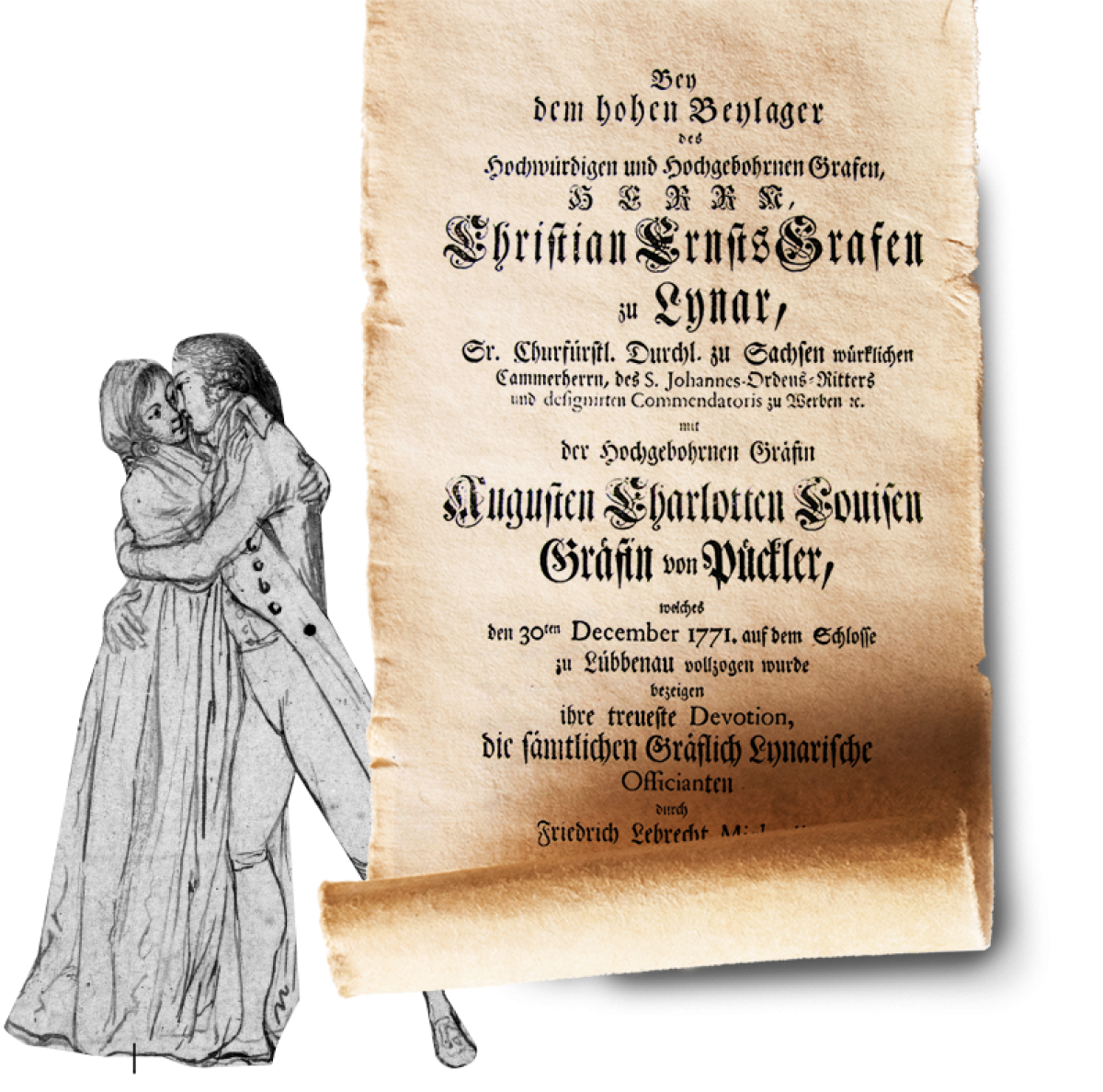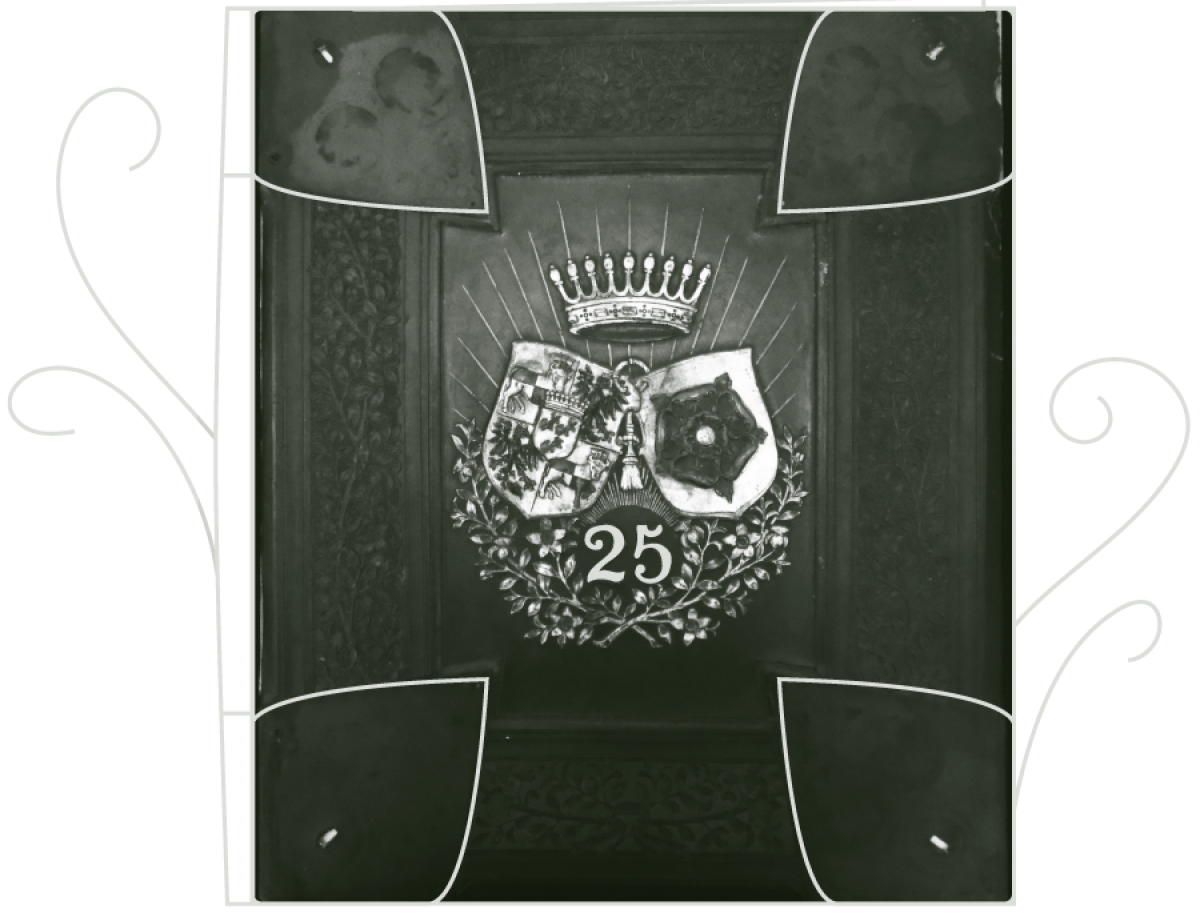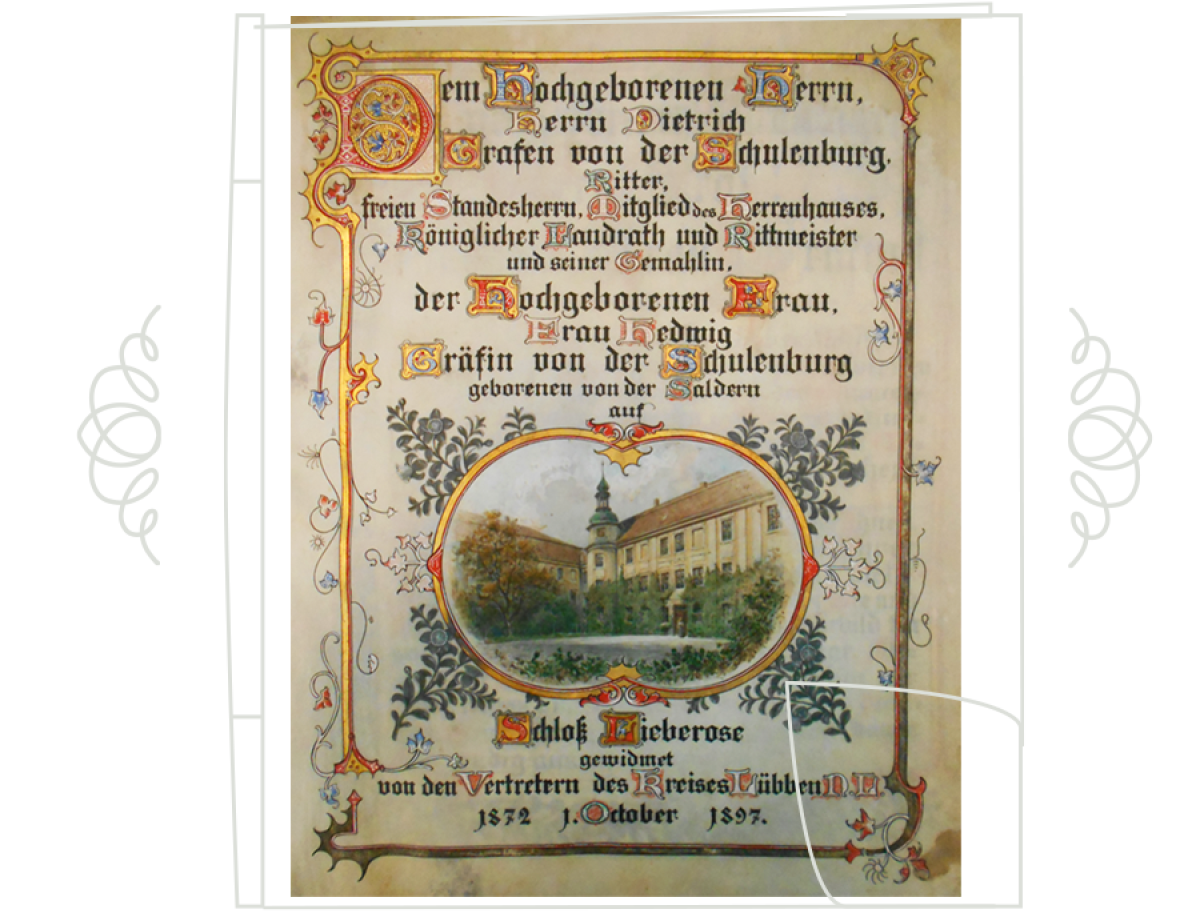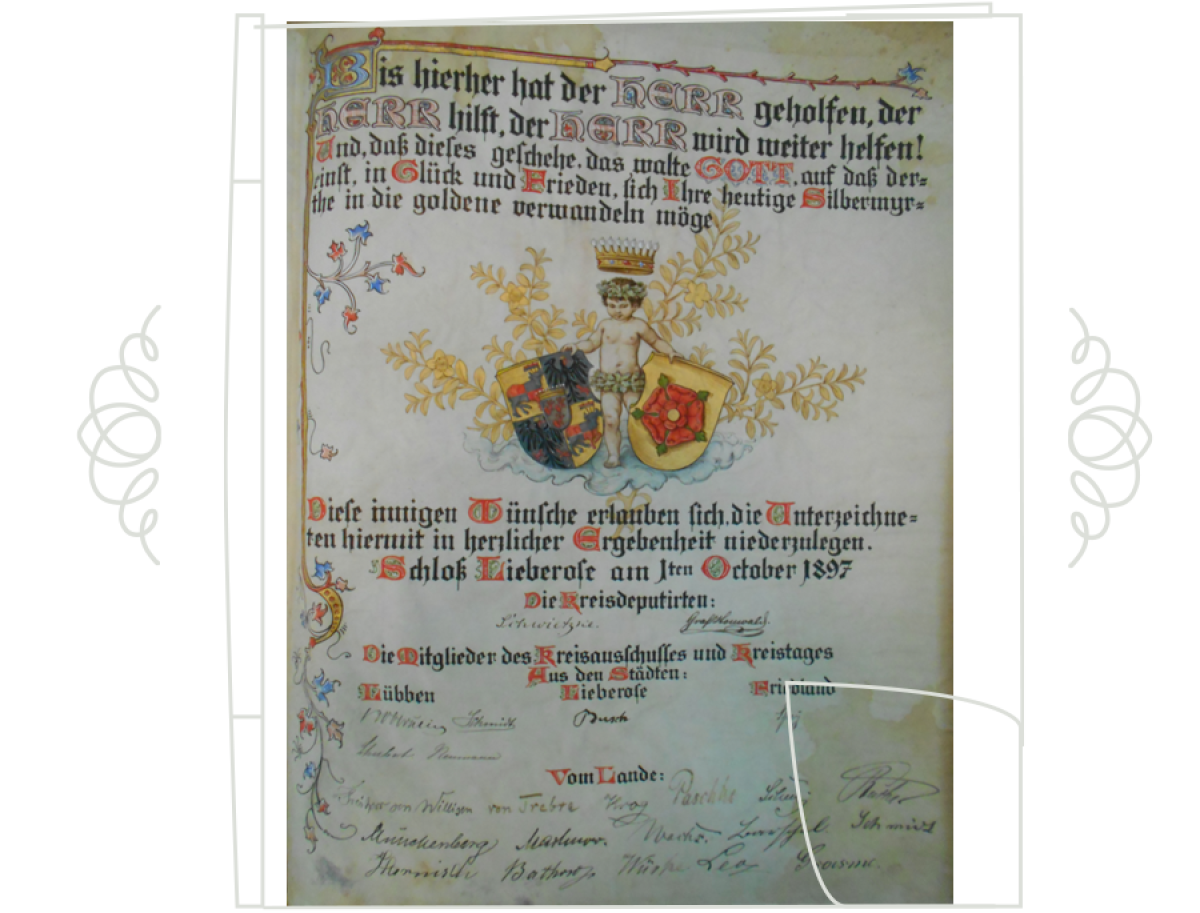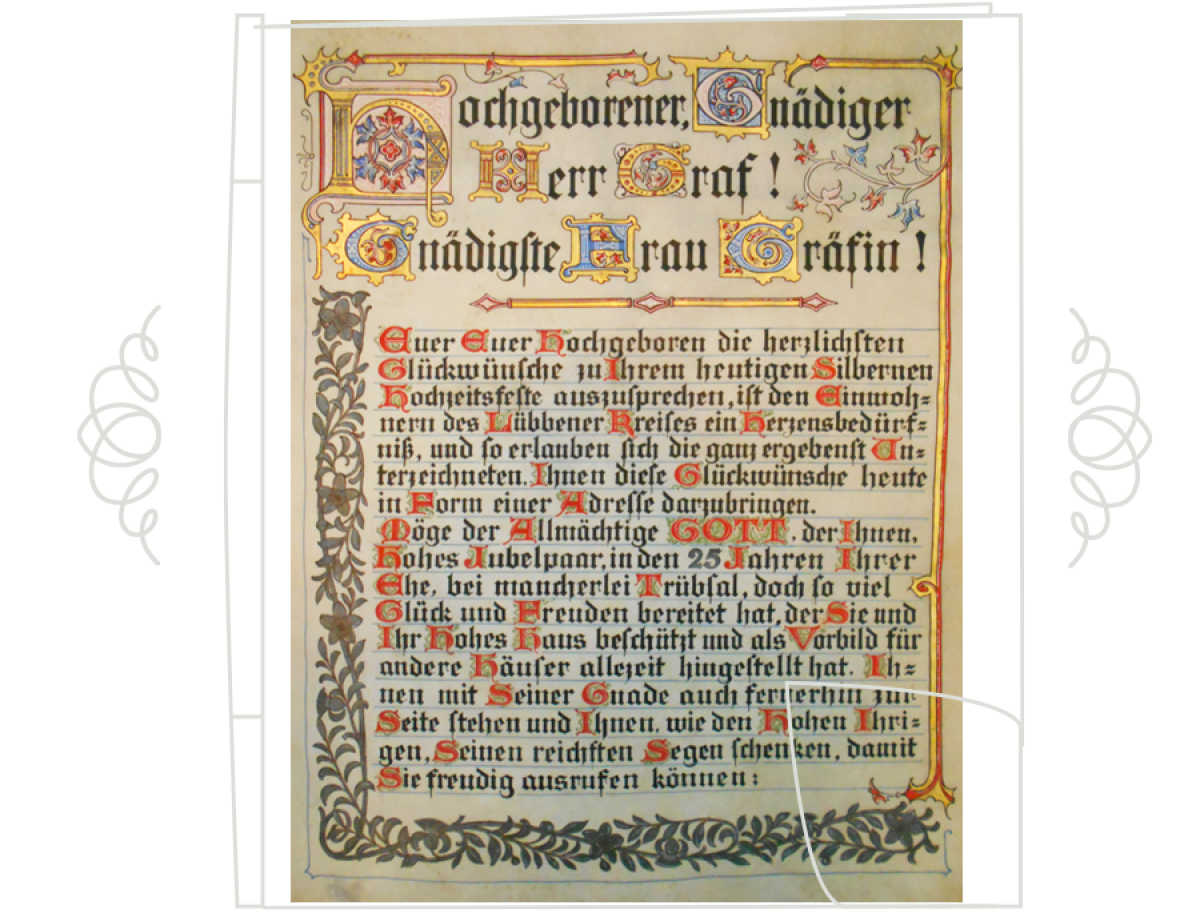Celebrating the lord’s arrival
Johann Störrle, Day labourer
![]()
Tomorrow, his lordship and her ladyship are coming! The young lord has finally gotten married and he and his wife want to live in the countryside permanently. All of us are supposed to dress in our Sunday best and to form a guard of honour in front of the manor house. Even the steward has been practicing his complimentary poem for days. All of us are really excited. Hopefully the new lord is more genial than the old one.
Didn’t we have an appointment?!
Chief administrator Behring
![]()
Been waiting for half an hour for the mayor! On-site meeting! All of that trouble because the village council decided against my recommendation that the manor should take care of the forest roads, even though the peasants are using them! There he is, together with his lordship. Must have congratulated the count in the name of the village upon the birth of his youngest daughter.
The Count is such a smartass...
Manfred Schulz, Mayor
![]()
Why does the old count have to get involved in everything all the time? It sometimes feels like the village council has just one member: Count Klagenfeld. He doesn’t own everything just because he’s got money! True, we still would not have a railway station without him and I also need to admit that he always donates money to the school festival. But that’s the way it should be. I will not be down on my knees because of that. Those times are gone. When all is said and done, I am the mayor of this village!
